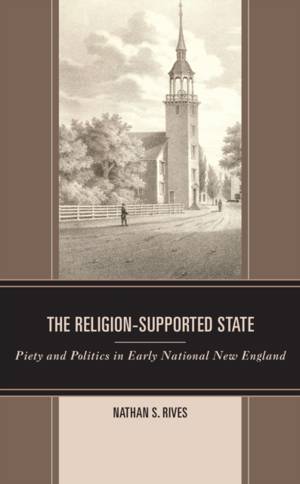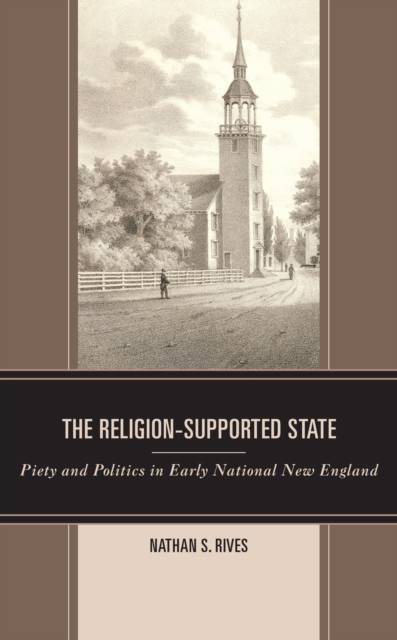
- Afhalen na 1 uur in een winkel met voorraad
- Gratis thuislevering in België vanaf € 30
- Ruim aanbod met 7 miljoen producten
- Afhalen na 1 uur in een winkel met voorraad
- Gratis thuislevering in België vanaf € 30
- Ruim aanbod met 7 miljoen producten
Zoeken
€ 203,95
+ 407 punten
Omschrijving
Between 1776 and 1850, the people, politicians, and clergy of New England transformed the relationship between church and state. They did not simply replace their religious establishments with voluntary churches and organizations. Instead, as they collided over disestablishment, Sunday laws, and antislavery, they built the foundation of what the author describes as a religion-supported state. Religious tolerance and pluralism coexisted in the religion-supported state with religious anxiety and controversy. Questions of religious liberty were shaped by public debates among evangelicals, Unitarians, Universalists, deists, and others about the moral implications of religious truth and error. The author traces the shifting, situational political alliances they constructed to protect the moral core of their competing truths. New England's religion-supported state still resonates in the United States in the twenty-first century.
Specificaties
Betrokkenen
- Auteur(s):
- Uitgeverij:
Inhoud
- Aantal bladzijden:
- 292
- Taal:
- Engels
- Reeks:
Eigenschappen
- Productcode (EAN):
- 9781793655240
- Verschijningsdatum:
- 1/09/2022
- Uitvoering:
- Hardcover
- Formaat:
- Genaaid
- Afmetingen:
- 152 mm x 229 mm
- Gewicht:
- 598 g

Alleen bij Standaard Boekhandel
+ 407 punten op je klantenkaart van Standaard Boekhandel
Beoordelingen
We publiceren alleen reviews die voldoen aan de voorwaarden voor reviews. Bekijk onze voorwaarden voor reviews.







